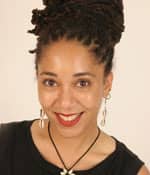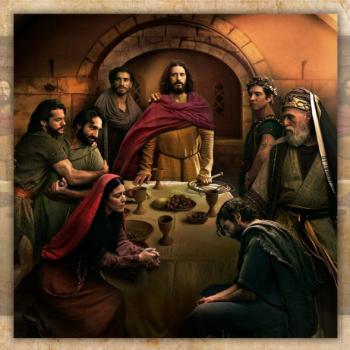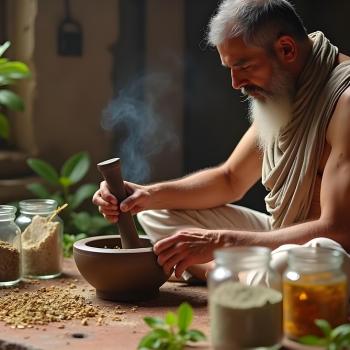 Amy Julia-Becker
Amy Julia-Becker
I first learned of Kathleen Norris in 1998, upon my graduation from college, when my thesis advisor gave me Amazing Grace: A Vocabulary of Faith. I lapped it up, grateful for the combination of personal narrative, poetic language, and research about the "scary" words of the Christian faith: blood, atonement, cross. I went on to read everything Norris had written. I learned her history, from a young woman from the Midwest with ministers in the family to an atheist poet in New York City, and then back to the Dakotas and back to her faith.
But it was a more recent little book of hers, a pamphlet almost, called The Quotidian Mysteries: Laundry, Liturgy, and Women's Work, that shaped my faith most deeply. This series of meditations upon the rhythms of everyday life, quotidian life, helped me to believe that there is significance in changing diapers and reading bedtime stories and wiping the kitchen counters for the fifth time in a day. Although Norris herself remains childless, her reflections helped me find my way into this new vocation of motherhood.
The book that comes to mind for every Christian to read is Mountains Beyond Mountains by Tracy Kidder. It is the story of Paul Farmer, founder of Partners in Health. It is well written and, as it details Farmer's work in Haiti, relevant to the current moment. Yet it strikes me as significant for Christians because it issues both a challenge and an encouragement. Farmer is a believer of sorts, although by no means a conventional or orthodox one. And yet his sense that God calls people for specific tasks that will serve and bless others compels him. Beyond that, he understands that individuals will be called to different tasks. For instance, when a wealthy businessman asks if he should sell his business and move to Haiti to serve the poor, Farmer responds with a definitive NO! He sees the work of the businessman who gives generously of his money as equally important as his own work providing medical services on the ground in Haiti. His work is an encouragement to find a vocation -- a calling that is life-giving to the self and the community. And it is also a story that suggests individuals who find that vocation really can participate in God's work of bringing the kingdom among us.
Amy Julia Becker is an author and seminary student at Princeton Theological Seminary. She blogs at Thin Places.
 Monica Coleman
Monica Coleman
I read Octavia Butler's Parable of the Sower every year. I also teach it to my theology students. In this science fiction novel, Lauren, an African American teenage girl, finds herself in a 21st-century Los Angeles where there is a major breakdown in U.S. infrastructure. Life is characterized by disease, fires, madness, and walled neighborhoods. When Lauren's neighborhood is destroyed, she takes a backpack of supplies and begins to walk north looking for a better life. She meets people who join her in the journey, and shares her observations about the world: a "God-is-change" philosophy. I love this book because it reminds me of what Jesus did, and how religions and theologies are formed: in a specific context, in what seem to be desperate times, in the interest of freedom, often while walking, and with people who want to share in the movement with you.
Monica A. Coleman is Associate Professor of Constructive Theology and African American Religions at Claremont School of Theology. She blogs at The Beautiful Mind Blog.
 Steve Thorngate
Steve Thorngate
I'm not sure what book most deeply affected my faith in the last ten years, but I am sure it was a collection of essays by Wendell Berry. I'll pick What Are People For?, though I could just as easily go with Sex, Economy, Freedom & Community. I first encountered Berry as a relatively sheltered evangelical college kid, a position from which his ideas seemed both radically new and intuitively good. Berry is at once ferociously opinionated and strikingly lyrical, a prophet-poet. His writing opened my eyes to the deep theological possibilities of a stubbornly high view of community, land, tradition, and work. Today, both the environmental movement generally and the sustainable food movement look to Berry as a sort of elder statesman, and I'm grateful to see this role occupied by an openly faith-based creative writer.
Do Christians still avoid Gunther Grass' The Tin Drum? I can understand why they would -- the postwar classic of magic realism has a reputation for being aggressively down on religion, especially the Christian kind. In one memorable scene, a group of nuns stand by during the carnage of Kristallnacht, holding a rather impotent sign: "Faith, hope, and love." "Blasphemy!" cried the Christians when the book came out. "God is dead!" crowed the atheists. But Paul, writing to the Corinthians, actually seems to agree with Grass: absent love -- ethical, courageous, uncompromising love that's so much more than a word on a sign -- faith and hope aren't really worth much. Grass demands not that the guilt-ridden German church cease and desist but instead that it actually be the church, and his greatest novel continues to convict complacent faith to its core.
Steve Thorngate is an assistant editor at Christian Century, where among other things he edits the magazine's staff blog and manages CCblogs network.




